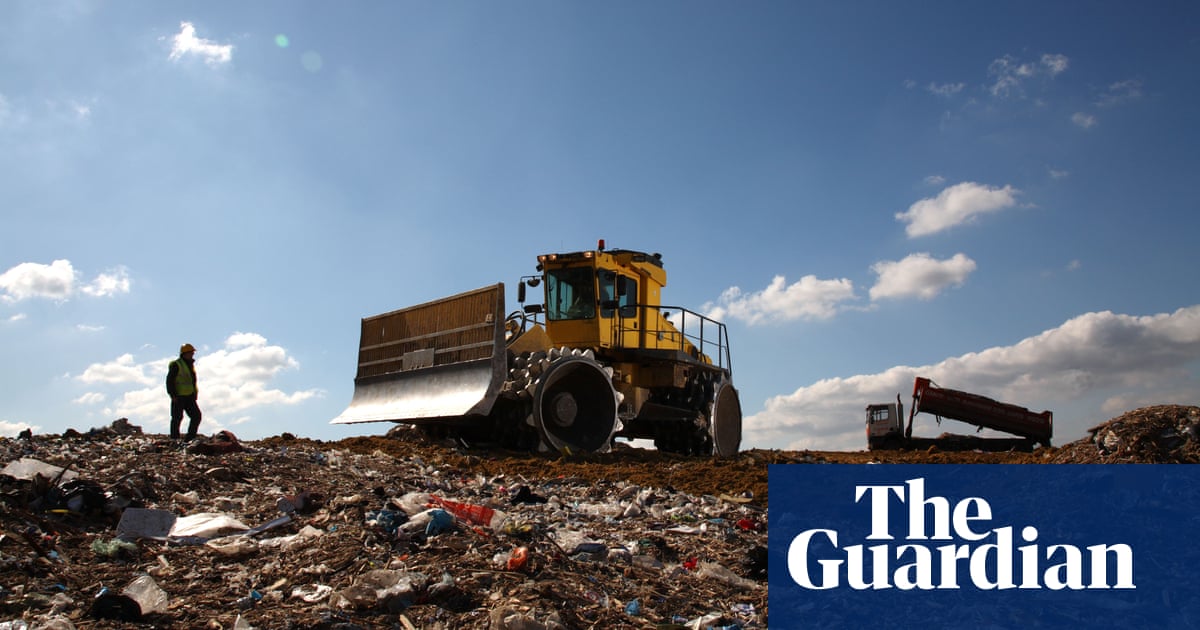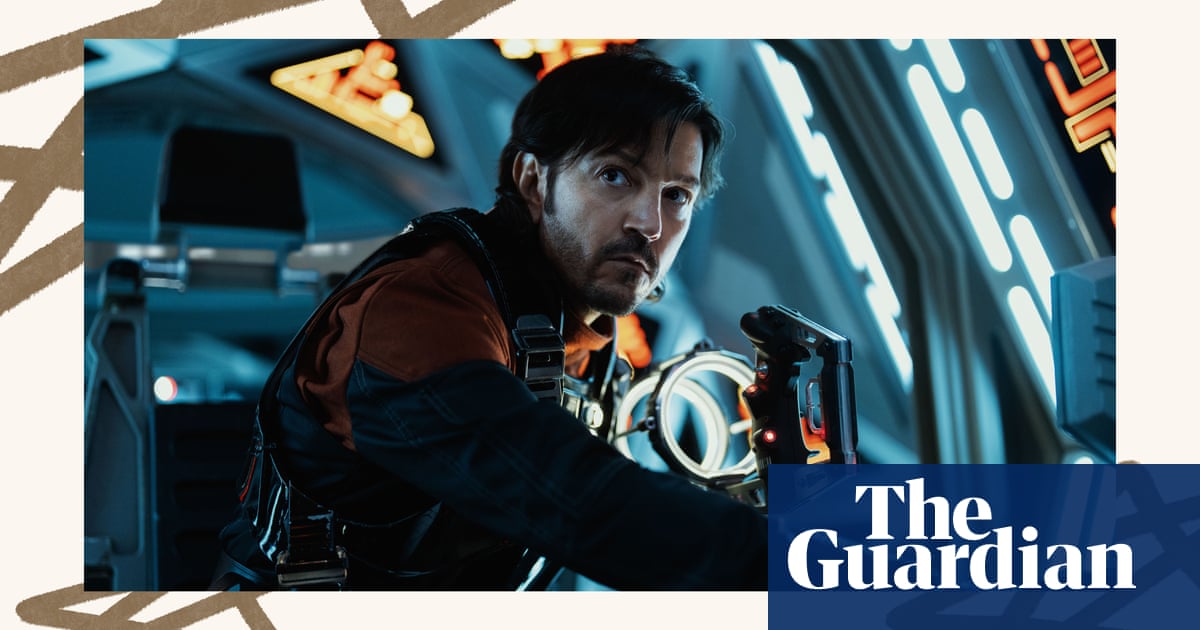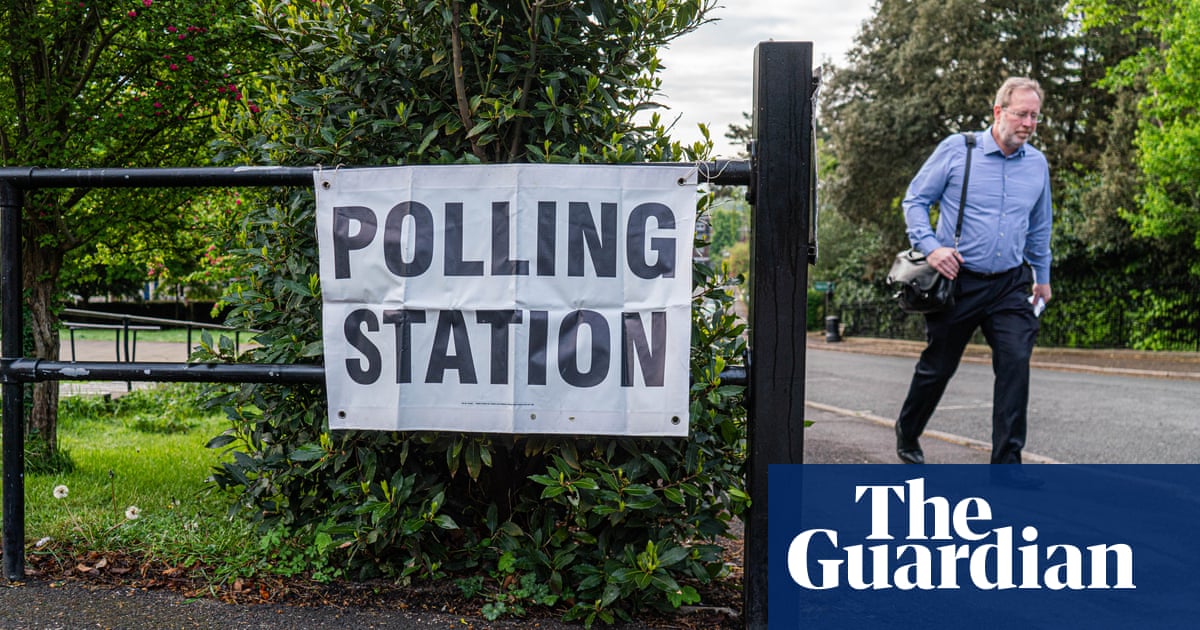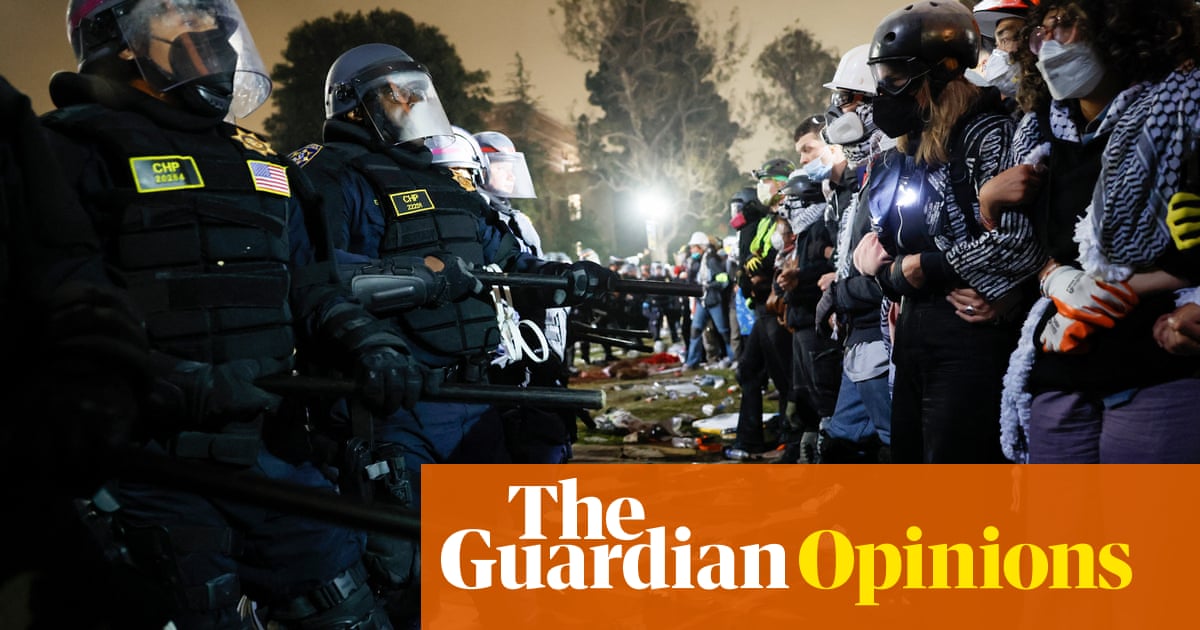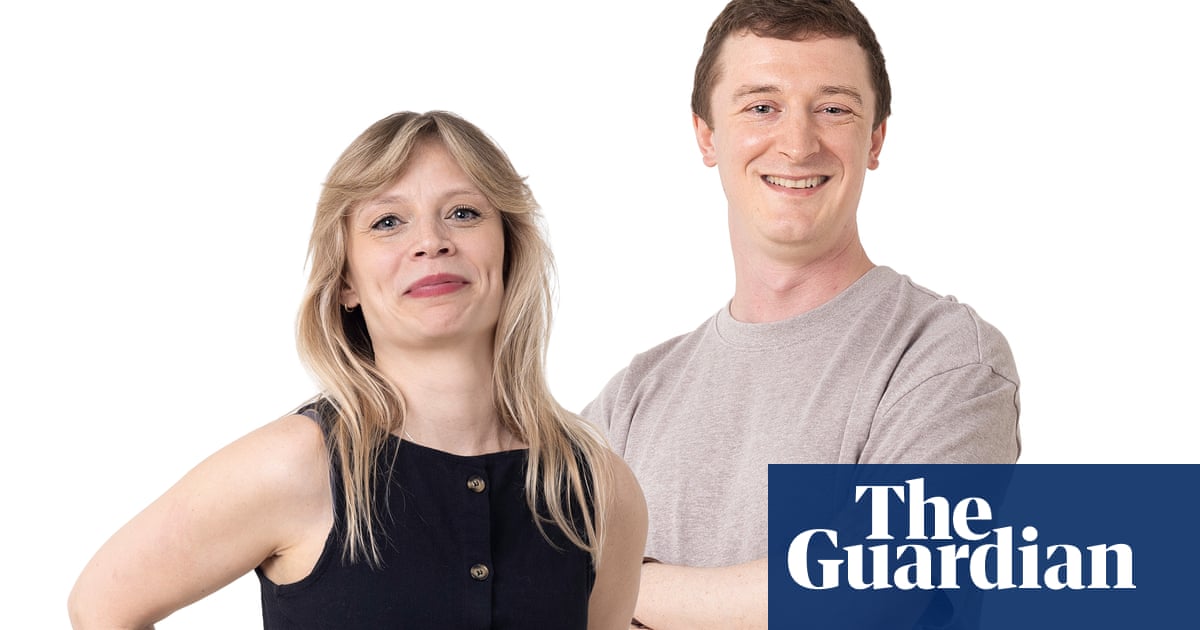It was March 2022 and Joshua Oppenheimer was waiting at Copenhagen airport for the young man who would be staying with him for a few weeks. Oppenheimer, who directed two devastating Oscar-nominated documentaries about the 1965 Indonesian genocide, The Act of Killing and The Look of Silence, had been working closely with Russian cinematographer Mikhail Krichman. He was now preparing to make The End, an audacious musical about the last family on earth hiding in their bunker following a climate-related apocalypse in which they were complicit. And Mikhail’s 22-year-old son, Vlad, was travelling to Copenhagen to participate in a workshop addressing the challenges implicit in The End, which was to be shot partly in German and Italian salt mines.
Oppenheimer had never met Vlad before, though he knew of his joie de vivre and infectious good humour. But the young man who emerged at arrivals that day, having stepped off a flight from Moscow, cut a very different figure. “He looked terrible,” the director recalls. “He was pale. He was stuttering. He was traumatised. It was frankly heartbreaking. I asked him, ‘What’s the matter?’ He said, ‘I can’t go back.’”
After consulting a lawyer, it was decided Vlad should seek asylum in Denmark. “You’ve invited someone to participate in a workshop,” says Oppenheimer, “and suddenly you’re depositing him in a refugee camp.” From the camp in Copenhagen, Vlad was moved to another in Jutland, west Denmark, where he spent the next six months. “Vlad was clear from the beginning. He said, ‘If this is the only way I can stay out of Russia, then I have to do it.’”

Oppenheimer is speaking by video from a cabin in Norway. Sitting beside me in a London office is Mikhail, or Misha as his friends know him. Although he has heard Oppenheimer tell this story before, he is wrinkling his brow in concern, reliving his son’s ordeal. It was Mikhail, after all, who accompanied Vlad to the airport in Moscow for that 2am flight to Copenhagen, watching from a distance as Vlad approached passport control. “Once he got through,” he says, “I breathed again.”
Against the odds, no one twigged that Vlad was fleeing the country to avoid being sent to fight in Ukraine, which Russia had invaded only two weeks earlier. The system was still in disarray and it was left to the discretion of officials to ask additional questions. Soon, that would no longer be the case. Were Vlad and Mikhail still in Russia, they would be stuck – and in prison, undoubtedly. It was established last month by the Organised Crime and Corruption Reporting Project that they are listed by the Ministry of the Interior as extremists for their support of the late opposition leader Alexei Navalny.

Vlad is now a refugee. “I didn’t really know what ‘refugee’ meant, or how someone becomes one,” he tells me, speaking from Denmark. “Then I applied and it became my life.” He is waiting to find out if he will be allowed to stay. His initial application for asylum was declined last autumn. His last-ditch appeal will be heard this week.
For several years before fleeing, Vlad had tried to avoid the draft by keeping a low profile at the home he shared with his parents and younger brother. “Sometimes people would turn up from the military office,” he explains. “Or it would be the police. My whole family went into this mobilised state where we turned off the lights and stopped answering the door or phone to anyone we didn’t know.”
But time was running out. By late 2021, the pressure on Vlad had intensified. He was now being threatened with two years in jail if he didn’t agree to military service. Following Russia’s full-scale invasion of Ukraine in February 2022, the situation escalated. “I didn’t know then about the possibility of asylum,” he says. “I just knew I needed to get out.” Even if his maternal family were not Ukrainian, facing constant bombardment at their home in Kyiv, he still would not have joined up. “As a pacifist, I could never fight, let alone in an illegal war against my mother’s family and the sovereign people of Ukraine.”
Shortly after Vlad escaped, Mikhail sensed that he and the rest of the family should leave too. Were they actively in danger? “It’s more unconscious than that,” he says. “It’s like a memory from your guts, your roots, your blood. You start remembering what you read about people who left Russia after the revolution.”
Oppenheimer says: “Misha’s old enough to have lived much of his life under the Soviet Union. And it was a deep memory of that, and its traumas, that told him: if you can leave now, then leave.”
With the help of friends, the director among them, Mikhail weighed up the options. Many of his former colleagues had already fled. One, his Ukrainian producer Alexander Rodnyansky, was tried in absentia last October, for speaking out against the invasion. He was sentenced to eight-and-a-half years in prison. “We are all spread around the world,” Mikhail says glumly.
The relocation to London of Mikhail, his wife and their younger son, who is 15, was made possible by a global talent visa, available for those working in arts, sciences or digital technology. Mikhail’s application was supported by industry figures such as Tilda Swinton, one of the stars of The End. While waiting for that visa to be approved, Mikhail and his family slept on the sofas and in the spare rooms of friends, including Oppenheimer. Throughout these upheavals, film-making has provided a way both for Mikhail to reflect on his own situation and to escape from it. “Work kept me sane,” he says.
It is inevitable that there should be echoes of his own life in the work he did with director Andrey Zvyagintsev, since so much of it is a critique of modern Russia. Their film Elena, from 2011, even involves a young man whose father is trying to help him avoid military service, albeit by nefarious means. (In that case, events lead to murder.)
The two projects Mikhail shot during the years of his family’s dispersal also proved eerily pertinent. The End – which he signed on to in 2018 but which, thanks to Covid and an extensive development process, wasn’t made until 2023 – is about “how self-deception undermines our capacity to love”, according to Oppenheimer. Mikhail was quick to identify resonances in the film’s characters, whose lies and delusions have brought about their own demise.
“We’ve ended up with disaster and dehumanisation in our society because we didn’t resolve the terrible mistakes Russia went through in the past,” he says. Oppenheimer adds: “That’s what you often said about The End. That Russia is like the culture in the bunker.”
“Yes,” Mikhail agrees. “The lie of the family mirrors the lies in society. On every level, people are lying to each other. In the factories, in the government, on the streets – everywhere.”

When production on The End finished in summer 2023, Mikhail was faced with the problem of what to do next. “On the last day, I came up in the elevator into this blinding sunlight from the Sonderhausen mine 800 metres below. And I asked myself, ‘What now?’” He had been invited to go to northern Italy to shoot Vermiglio, a wartime drama directed by Maura Delpero. “I knew I had to take it to keep on going. To stimulate me and to stay sane.” In its story of a deserter and the rural community that takes him in, the film, currently longlisted for an Oscar, offered a mirror to Vlad’s situation.
“You could call my older son a deserter because he doesn’t want to fight,” says Mikhail. “There is a conflict in Vermiglio between people welcoming the deserter and others saying, ‘Traitor!’ When you are waking up five times a night and your brain is trying to process your problems, then somehow everything becomes related to what is dear to your heart. But when we were making Vermiglio in the mountains, I thought of the deserters who didn’t want to fight. I can’t get rid of the thought that this could be my son if he were drafted.”
Carefree days are a thing of the past for Mikhail and his family, but this will be an especially taxing week. The decision on Vlad’s appeal is just days away, and Mikhail is understandably concerned. At one point during our conversation, he breaks down. Vlad, too, is visibly agitated, his face carved with worry. But for all that, the young man remains defiant. “Russia,” he says, “is killing innocent people, assassinating democratic leaders like Navalny, and threatening freedoms around the world. As long as this continues, I will be proud to be listed as an extremist, opposing Vladimir Putin and his criminal state.”

.png) 3 months ago
36
3 months ago
36













